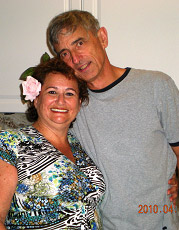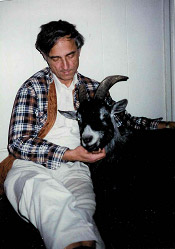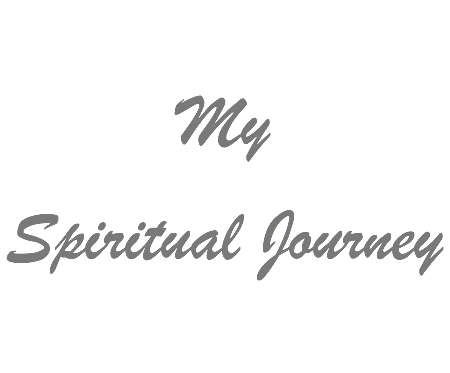PART 4: MY FAITH CRISIS AND MY NEW SPIRITUAL JOURNEY: 1990-2017
My meaningful and happy life came to a crashing end in early October 1990. During that late summer and early fall, as I continued as a fulltime peace pilgrim, averaging 15 miles a day as I crisscrossed the state of Maine, I stopped daily at parishes to speak on “Making Peace with Creation” that highlighted the environmental teaching of the Church.
That previous spring I had been asked to represent my province on a national peace and justice committee of the five US provinces. At the end of September someone gave me a ride from Kittery, the southernmost town in Maine, to Lowell, Massachusetts where the four-day meeting would take place. One evening most of my fellow priest committee members went to someone’s house; and I chose not to go. The next morning on the back porch of the rectory one of them reported to me on the previous evening. Each person had been asked a series of religious question to which he could only answer yes or know – not, for example, mostly yes but partly no. One example was, “Do you believe in an afterlife?” I was stunned at the answer “no” that was given by more than one to that question.
That Saturday I was given a ride back to Kittery, Maine; and I walked northwest to the next parish where I preached at the weekend masses. As I walked from there to the parishes in Sanford on Monday and to Biddeford on Tuesday, I began asking myself, “How would I have answered those questions if I could only answer yes or no?” From there I went on to other questions and began reflecting in depth. Sometime on Tuesday I realized that I no longer believed. Did it all happen very suddenly? Yes; but I knew that I had hit a brick wall through which there was no passage. With the benefit of hindsight months and years later, during the previous two decades I had built theological buttresses that supported the cathedral of my belief. When one buttress gave way, they all began to crumble. Everything collapsed in two days.
I continued my peace pilgrimage through Maine until my itinerary and speaking engagements ended just before Thanksgiving. During my days of walking I wavered from total loss to hopeful, future possibilities. Through it all I never hesitated in my decision that I must leave the priesthood. The verse from John’s gospel came to me as an almost daily refrain, “The truth will set you free.” I have since learned firsthand that other priests and Christian ministers whose non-belief is similar to mine have chosen to continue in the ministry. As one said to me, “I still find the stories very meaningful.”
My biggest loss during those last two months as a pilgrim was the profound loss of the Christian God who had been at the center of my entire life. I was also losing the life that gave me meaning. I was losing the only life and profession for which I had trained and in which I had happily lived. All was ending.
When I returned home for Thanksgiving, the only words I could tell my family was that I had decided to leave the priesthood. I could say no more. When pressed by my brother and sister-in-law, I lied. I never told my parents the reason I left. With their being older and thinking more about death, I couldn’t bear to tell them that I no longer believed in their loving God who would welcome them into an immortal life.
Beginning my new way of life was the most difficult transition in my life. There are a number of things about my former life that I have missed; but I have always known that I made the right decision – the only decision I could make. During the remainder of my professional life I learned to find a different kind of job satisfaction in two non-profit organizations, first as the administrator of a national organization that provides stipends to health care students who perform needed health service projects and in my second job as the executive director of an environmental organization.
 After decades of stunted growth in my psycho-sexual development I learned how to relate to women on all levels. I had three consecutive partnerships that eventually ended. Five months after meeting Karen I knew for sure that I had struck gold and that I could live a happy marriage with her. We married nine months later and have enjoyed wonderful years together on many levels. She has been the greatest gift in my life. Now, as we deal with my cancer, our love and communication deepen in a different way as we share our common and different thoughts and feelings about the present and the future. I now also experience her love as she physically cares for me. My biggest regret in dying is that I will leave Karen behind and be the cause of her grief.
After decades of stunted growth in my psycho-sexual development I learned how to relate to women on all levels. I had three consecutive partnerships that eventually ended. Five months after meeting Karen I knew for sure that I had struck gold and that I could live a happy marriage with her. We married nine months later and have enjoyed wonderful years together on many levels. She has been the greatest gift in my life. Now, as we deal with my cancer, our love and communication deepen in a different way as we share our common and different thoughts and feelings about the present and the future. I now also experience her love as she physically cares for me. My biggest regret in dying is that I will leave Karen behind and be the cause of her grief.
I think that for most of us leaving a religion behind, the clearest notion in the beginning is what and why we are leaving, whether it is because of teachings or any number of other reasons. For me it was the string of questions that I had been able to only half ask or answer. Suddenly, my previous answers were inadequate and no longer true.
For a few months after leaving the priesthood I continued to go to a Catholic church on Sunday, partly because it had been a cornerstone of my religious practice, partly because it offered a time to reflect, and partly because it offered a weekly transition place from my only religious community since birth.
Over these past decades, I have continued to occasionally read articles and listen to recordings about theology. In the process I become more convinced than ever that my spiritual journey moved in the right direction. For example, not long ago I listened to lectures on “How Jesus Became God.” It brought together what I had come to know in other ways, namely, that the varied, early Christian views of Jesus’ nature were by the fourth century condemned as heretical with the only orthodox view being the one found in the first chapter of the Gospel of John, one of the last books of the New Testament written about 70 years after Jesus’ life, and declared a dogma in the fourth century that is enshrined in the Nicene Creed, i.e., Jesus the pre-existent Son of God.
In my opinion the Christian God story was a great step forward from the ancient world religions with their oftentimes-capricious gods. However, I think that the Christian era in Europe and North America has been gradually passing and that Christianity will claim a smaller and smaller percentage of the population in the developed world.
After that first religious step of realizing what I no longer believed and what I was leaving behind, the second step was figuring out what was my new spiritual path. I began asking and answering questions like, “Who\what transcends me? What do I believe? Towards what do I strive? To what am I willing to give my life?” I first settled on the philosophical transcendentals that I had learned in my philosophy courses: Truth, Goodness and Beauty. In some ways these are a humanist continuation of my previous spiritual journey. For example, giving oneself to the ever-elusive search for Truth, never knowing for sure that one has achieved part of it, is similar to searching for and living within the mystery of the Christian God who is Truth.
Although the foundation of my ethics continued to be Christian, within a few years I added a new dimension that went beyond the mainly human-to-human ethics of Christianity to an expanded ethic that includes all life. It is summarized in Albert Schweitzer’s Reverence for Life. In short, I am in solidarity with all other life. I share with every other life “the will to live.” The human ethical response is not only respect and reverence for my life and that of my fellow humans but to have the same for all life. We can only ever kill life out of necessity. A minor example of what I do now is to capture unwanted insects in the house (I kill mosquitoes) and release them outside. “I respect and have reverence for your life; but this is my space. Out you go; and I will make every effort not to kill you or damage your space.”
The internalization of my vow of poverty forty years ago, which I summarized above, transitioned well into an environmental ethic as an important component in my new spiritual journey. I continue to want little and live simply; and I reject the consumerism of our society. While I make conscious decisions such as driving a small car and installing solar panels on the roof of our home, I realize that my middle class existence in the United States probably puts me in the top fifty percentile of humans causing environmental damage. I am painfully aware of my personal limitations in caring for our Earth Home.
 In 1993 my then partner and I adopted an old wether (a castrated male goat). Woody became much more than a pet. He increasingly touched my soul during his three years with us. I became much more aware of what united rather than what divided us. I began experiencing him as my brother. Twenty-four years later I still refer to him as “my brother Woody.” He concretized for me like no other previous experience that we are all indeed one. I first experienced through Woody that all living beings are my brothers and sisters and cousins.
In 1993 my then partner and I adopted an old wether (a castrated male goat). Woody became much more than a pet. He increasingly touched my soul during his three years with us. I became much more aware of what united rather than what divided us. I began experiencing him as my brother. Twenty-four years later I still refer to him as “my brother Woody.” He concretized for me like no other previous experience that we are all indeed one. I first experienced through Woody that all living beings are my brothers and sisters and cousins.
My species is part of the tree of life that traces it’s beginning to the planet’s first organisms. I am in awe of life in its many manifestations. I enjoy it. I rejoice in it. I celebrate it. I am humbled by it. Life is one. For a brief moment in time I am part of this amazing symphony of life. The other mammals are my brothers and sisters. The birds and the frogs and fish are my cousins. The trees that surround me when I sit in the woods are my more distant cousins. I marvel that the rhythm of the trees’ lives is not so much measured in the daily rising and setting of the sun but rather in the seasons of the year. I am in awe of life in its many manifestations. I enjoy it. I rejoice in it. I celebrate it. I am humbled by it. If there be any named gods, they are Father Sun and Mother Earth.
Since marrying Karen, I have experienced part of the Goodness of the divine in our relationship. We both have a spark of the divine within us, individually and hopefully together as a couple. We strive towards greater truth and goodness in our relationship and with all of the earth community. This part of my spiritual journey is possibly similar to the divine that many of you experience in your partnership or marriage.
As I have grown older, my spirituality has included an ever-increasing attitude of gratitude. I have been granted countless, overflowing gifts and blessings. I have been enriched beyond measure. My life has been an amazing journey. Thank you. Thank you.
During this second, multi-faceted phase of the my spiritual journey I have continued to find it important to be part of a community in which I am at home and which supports me in my journey. I am a member of the Unitarian Universalist Church, a non-creedal denomination that supports one’s individual search for meaning as the community strives to live peace and justice.
As activities in my spiritual journey, I value mindfulness meditation although it has regrettably never been a daily practice. On a more regular basis I sit on the front porch of our home that is in a rural setting or in the center of the labyrinth that I made, mostly in the woods around our home with wide wooded spaces separating the path. Walking the labyrinth and sitting at its center or simply sitting on the front porch of our home are usually meditative or contemplative experiences. One day I am attuned to the beauty, sights, smells and sounds of the natural world. On an other day I experience a greater oneness with Earth and its life. On another I find myself reflecting on my journey or the events or questions in my life. On another, insight and meaning may come to me.
